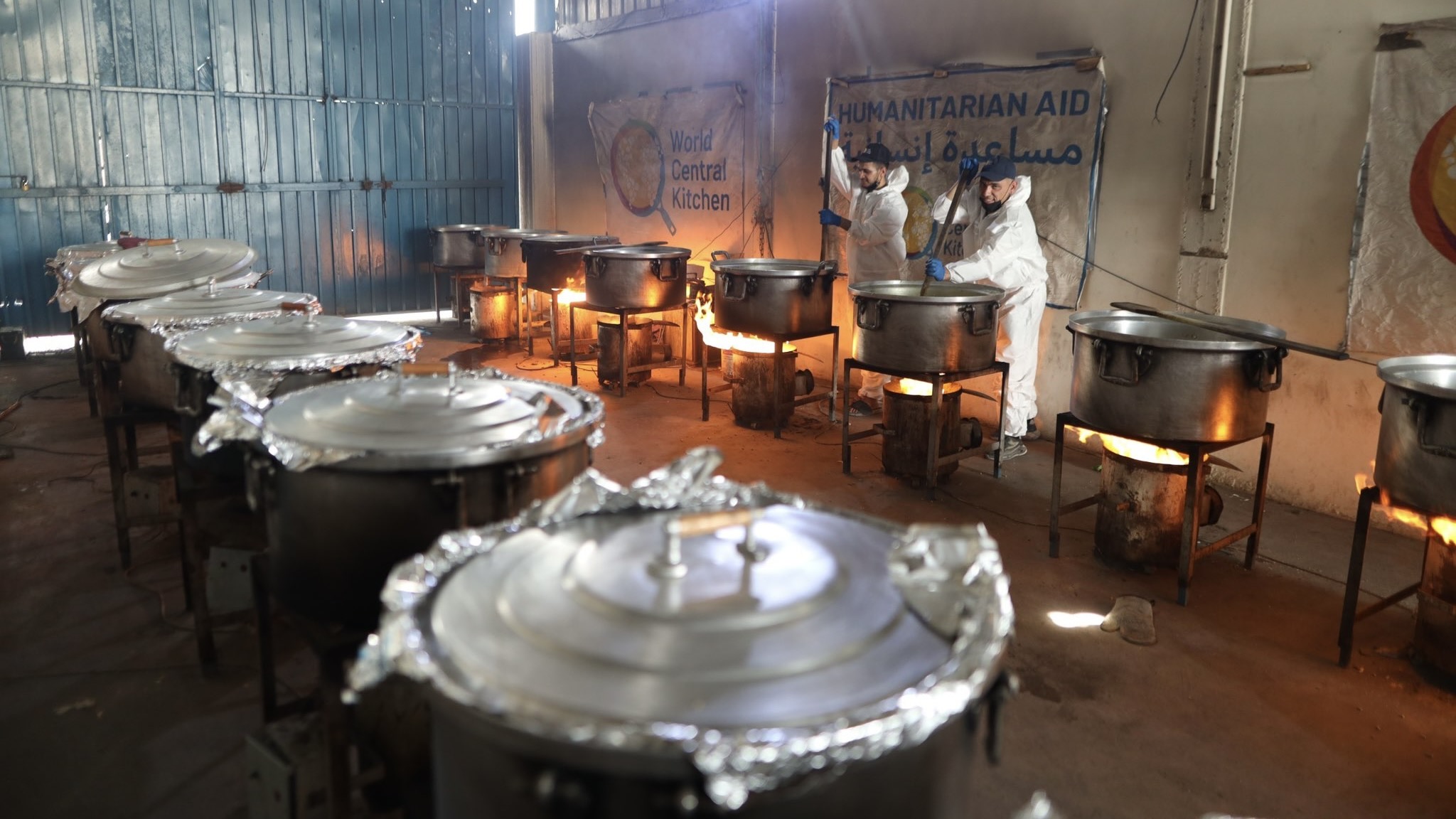A day after Israeli prime minister Benjamin Netanyahu claimed the killing of seven aid workers in central Gaza was a mistake, an Al-Jazeera investigation establishes that the killing was intentional.
Citing testimonies from the eyewitnesses, data from open source information, and images from the site of the attack, Al-Jazeera’s Sanad Verification Agency makes it clear that Israeli forces launched three different airstrikes targeting three different vehicles at three different locations—which cannot be done by mistake.
Other assessments also establish that there was a considerable gap of more than 30 minutes, and a distance of almost two miles between the three vehicles when attacked. This rules out accidental bombing.
World Central Kitchen (WCK), the agency the slaughtered aid workers killed belonged to, has already stated that the vehicles hit by Israeli air strikes were clearly identifiable with bold markings of WCK on their rooftops, and that their movements were coordinated in advance with the Israeli government.
Except for one Palestinian from Rafah, six other aid workers killed in the Israeli attack belonged to various countries, three from the UK, and one each from Canada, Australia and Poland. The WCK has demanded a fair and independent investigation into the killings, and has called on the countries that the slaughtered aid workers were nationals of, Australia, the UK, the US, Canada and Poland, to join them in demanding an investigation.
The governments in the UK, Canada and Australia have close diplomatic relations with Israel. Most of these governments have been backing the Israeli war in Gaza, labeling acts of genocide as Israel’s “right to self defense.”
Israel has never provided any credible explanations in its previous attacks on aid workers, for example, the slaughter of workers from the International Rescue Committee in March.
Israel paralyzes humanitarian aid work in Gaza
Following the attack, WCK announced that it is suspending operations in Gaza. Several other aid groups have done the same, sensing that carrying out humanitarian aid services will put workers’ lives at risk. The UN has also announced suspension of its aid delivery work during the night for at least next 48 hours on Wednesday.
Stephane Dujarric, the Spokesman for the United Nations Secretary-General António Guterres, says that the suspension of aid has a “double impact” on Palestinians seeking aid, as well as a “psychological and chilling effect” on the remaining humanitarian aid workers who “continue to do their utmost to deliver aid to those who need it at great personal risk.”
WCK was aiding the World Health Organization (WHO) in providing food to health workers and patients in different hospitals across Gaza. Health workers themselves are working under uniquely strenuous conditions. Most hospitals in Gaza, such as its largest, Al-Shifa, have been shut down due to repeated attacks by the Israeli forces. The few hospitals still working have little resources and are overcrowded with patients and people taking shelter from Israeli bombings.
The attacks on WCK workers were not rare or exceptional. The Zionist state has repeatedly attacked aid workers, killing over 200 of them since October 7, according to the UN. Israel has deliberately slowed the flow of the aid, forcing some countries to resort to airdropping, which itself has resulted in casualties.
In the last few months, Israeli forces have targeted and killed hundreds of Palestinians waiting for aid delivery. In most of these instances, Israeli forces blamed Palestinians for overcrowding the streets.
Israel has targeted the UNRWA, the largest and most effective aid agency in Gaza responsible for over a million displaced Palestinians in Gaza during the war, by leveling unsubstantiated allegations of collaboration with Hamas. Several countries, including the US and the UK, suspended their funding to the UN agency, citing those allegations.
All this has been happening amidst multiple UN agencies reporting rising starvation among hundreds of thousands of Palestinians in Gaza, and the growing risk of famine. Israel has gotten away with violating both the International Court of Justice (ICJ) interim order and the UN Security Council resolution on providing greater access to humanitarian aid for Palestinians.
As the Euro-Med Human Rights Monitor concluded in a recent report, “The use of starvation as a weapon has been an official political decision from the first day of the war, as declared by the Israeli Minister of Defense, and was implemented in integrated stages, which have included tightening the siege and closing the border crossings; preventing the entry of commercial goods; destroying all components of local production and food sources; increasing the Gaza Strip population’s reliance on humanitarian aid; and turning it into their main source of food.”





